Behind the scenes with CHAMPS CIO Tim Morris
Each year, nearly six million children under the age of five die, mostly from preventable circumstances including pneumonia, diarrhea and malaria—and primarily in the world’s low- and middle-income countries. While information about childhood mortality data has been collected in these regions, it often has been incomplete, delayed, of poor quality, or based on estimates. Innovative approaches to mortality surveillance, and a focus on standardization of data collection across countries and regions where mortality is highest, will be critical to informing effective public health response and prevention strategies.
The Child Health and Mortality Prevention Surveillance (CHAMPS) Network, is taking such an approach. CHAMPS is establishing a network of sites in southern Asia and Sub-Saharan Africa to collect robust, standardized data that can be shared across a range of partners and stakeholders to analyze and track the preventable causes of death for children under five years old. Three sites have been established so far, with possibly up to 20 sites in the next 20 years.
Informatics role at CHAMPS
Informatics is vital to ensuring we’re collecting timely, accurate and actionable data, and I’m fortunate to lead a talented informatics team at CHAMPS. The role of the CHAMPS informatics team is to engineer reliable and locally sustainable methods for the collection and integration of case-specific data that is comparable across each of the CHAMPS surveillance areas.

Addressing different types of data
CHAMPS is unique in the scope of data that will be captured. To better understand causes of child mortality, the program will collect laboratory results, clinical information and verbal autopsy data on perinatal and under-five child deaths, as well as maternal health data if available. As the program ramps up, additional protocols to support pregnancy surveillance and severe disease in children under age five are expected.
In addition to clinical and laboratory data, CHAMPS is working with local communities where CHAMPS sites exist. The CHAMPS team is implementing workshops targeted at understanding community perceptions about child mortality and the acceptability of performing the CHAMPS protocol in their community. Responses from community members and leaders will be transcribed and qualitatively analyzed by the CHAMPS social behavioral science team.
 Standardizing data
Standardizing data
We are in the early stages of this long-term program, and information from the community engagement workshops is the first data being produced by sites. Following appropriate levels of community engagement activities for each site, the mortality protocol will begin creating a steady stream of data for analysis. Even at this early state, the informatics team has been working hard to develop detailed models and specifications to ensure standardized collection of comparable data across the initial sites. The informatics work is a huge undertaking because the systems and infrastructure of each surveillance site vary.
These carefully defined data elements and the rigorous application of standards are necessary to ensure that CHAMPS will facilitate the collection of consistent, high-quality data across a distributed network of surveillance sites. Our team is building information flow models and developing detailed data specifications to support CHAMPS sites. The models and specifications illustrate and define how information is captured and shared both at the local level and to the CHAMPS program office in Atlanta.
Another key component of the CHAMPS program is developing and implementing a process to convene a panel of medical experts with specialties including infectious diseases, pediatrics, pathology, and microbiology. This panel of experts will review information about each death and come to consensus on the underlying cause of death, as well as a number of possible contributing factors. This process dubbed DeCoDe, the short name for Determine Cause of Death, is a new approach made possible by the breadth of data being collected on each case.

As part of a pilot focused on better understanding DeCoDe workflow, system requirements, data presentation and potential challenges with cause of death determination, the CHAMPS team, using case data from an earlier pilot study in South Africa, convened multiple DeCoDe panel sessions in Atlanta. The Public Health Informatics Institute (PHII) team developed a prototype application that provided case management, panel assignement, data integration, and data entry for cause of death determination. Lessons learned from the pilot will inform the overall DeCoDe process and any data management needs to support it as implementation of the full CHAMPS protocol is initiated at the sites.

Implementing new solutions
Several sites will rely on solutions from the CHAMPS program office to support web-based, mobile and offline electronic case report form data collection. Therefore, we are working with each site on a comprehensive informatics implementation plan.
Planning begins with a visit to the site to walk through the mortality protocol processes and data flow documentation. The objective of this documentation is to reach a shared understanding of site implementation specifics with regard to workflow, procedures, systems, and staff. Our collaborative process helps us work with sites to leverage their strongest technical capabilities, and identify potential gaps where we can help develop and implement solutions.
While the work of informatics is often behind the scenes, it is critical for the CHAMPS Network. Ultimately, the robust data from CHAMPS sites will be shared among scientists and health officials to better inform clinical care, advocacy, research and other public health initiatives. It is our vision that information from CHAMPS will be used to develop evidence-based policy, set priorities for research, and directly inform the impactful investment and provisioning of much-needed vaccines and medicines to those in need.
The CHAMPS Network is led by the Emory Global Health Institute and supported by the Bill & Melinda Gates Foundation. Learn more at http://champshealth.org/.
This blog was written with contributions from Patrick Caneer.


